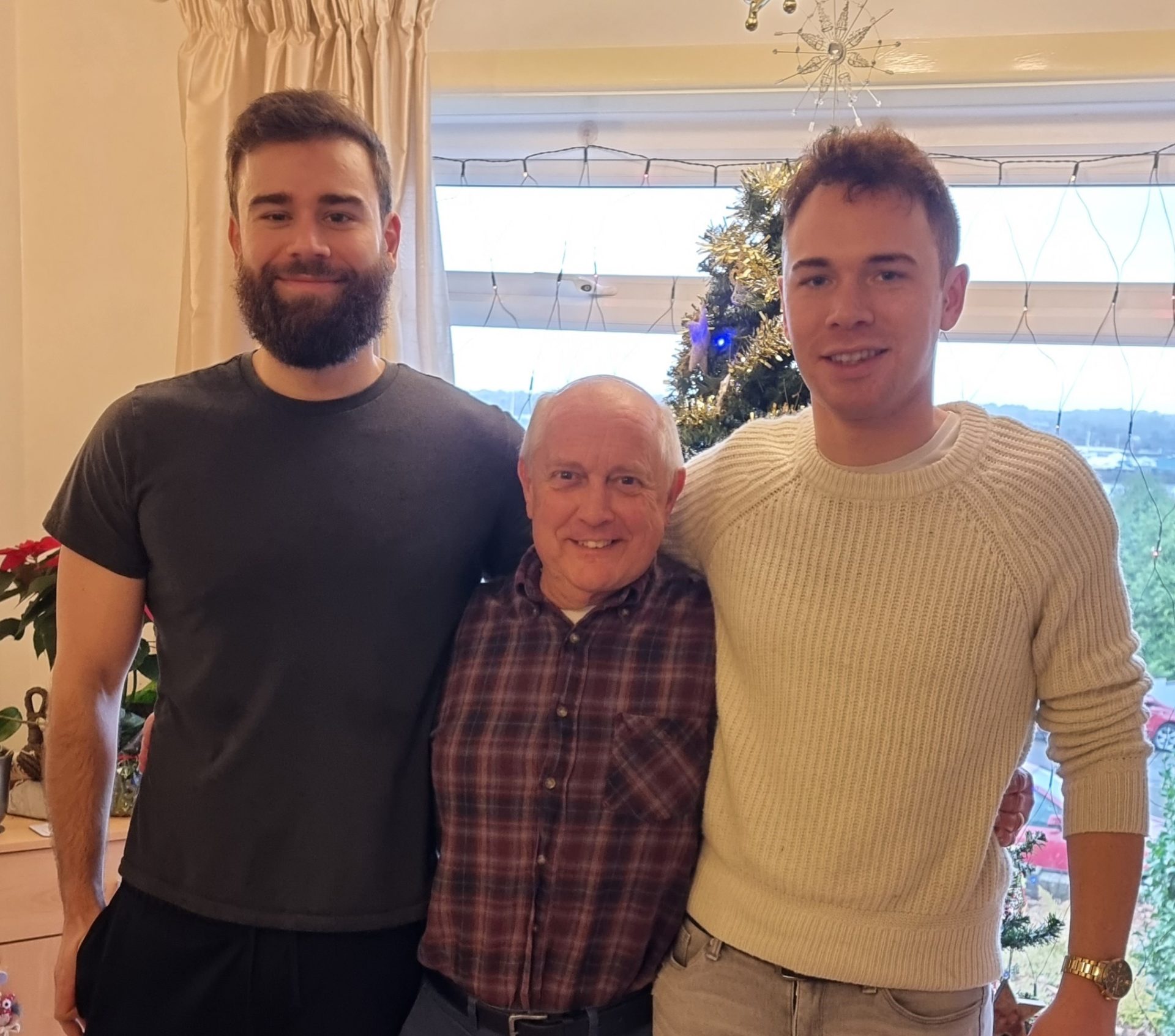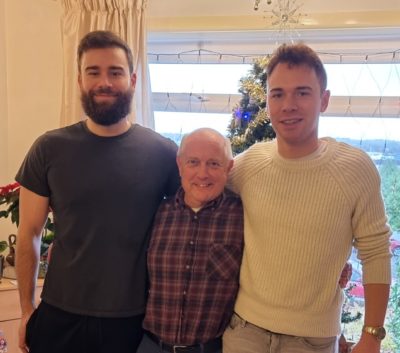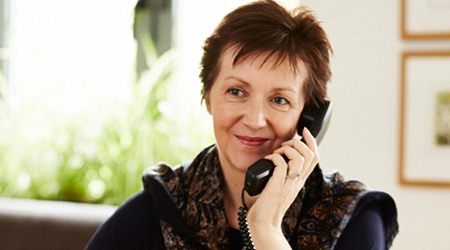



Andy
Andy was 64 and taking part in a lung disease screening programme when a scan showed two growths on his pancreas. A year later, after surgery to remove them, he was formally diagnosed with a neuroendocrine tumour and a microcystic serous cystadenoma. He reflects on how lucky he was to be diagnosed early.
Late in 2021 I had a lung scan as part of a screening programme. To get this scan I answered a series of questions and just scored enough points to get onto the scheme, and thank goodness I did. The lung scan showed my lungs were a bit damaged, but that was entirely as expected given my history. What was also found was a large cyst around my pancreas.
They did further tests
A further abdominal scan was requested. This showed a cyst around my pancreas and an unidentified “thing” in my pancreas.
A very difficult year followed, during which there was an attempted operation, which did not take place because no ICU bed was available; another scan and an attempted biopsy which was unsuccessful. Following that I had another scan and a few months later we were told that there was still uncertainty about what the “thing” was. The view was that the operation should not go ahead. Further scans would be taken to keep an eye on things.
A couple of months later after the very next scan we went to see the consultant who informed us that the radiologist’s view was now that the “thing” was some form of cancer and needed to be removed surgically. The operation was called a distal pancreatectomy.
I had an operation to remove the cancer
In September the operation went ahead, in spite of my heart failure. The operation went well, and I was out of hospital in a week. Things could not have gone better.
I was diagnosed with two types of pancreatic disease
The next visit to the consultant a month or so later was a bit of a shock. The biopsy of the bits that had been removed found a neuroendocrine tumour and a microcystic serous cystadenoma. Incredibly luckily (again) neither were considered “particularly aggressive” and no further treatment is required. The consultant’s advice was “get on with living your life.” Sound advice, that I am trying to follow as things settle down after the disruption and trauma of the last year.
Coping with the emotional impact was hard
Even though I have been very, very fortunate the uncertain and changing diagnosis made for a very difficult year. I almost feel guilty for struggling at all when the outcome seems so good. However, the fear that came from the reputation of pancreatic cancers and knowing family members who did not survive them was bound to affect both friends and family and myself.
I feel incredibly lucky
I have had cancer before, so this now makes five different cancers that have been successfully removed from me. In each case early detection and removal was key to my survival. I know I am extremely fortunate to have lived this long.
The NHS is a wonderful concept, staffed by dedicated and wonderful people. The continual work to deal with different cancers has made huge progress over my lifetime.
We need more screening to find pancreatic cancer early
Pancreatic cancers remain incredibly dangerous for several reasons. My early diagnosis was by pure chance. It would be wonderful if early detection of pancreatic problems became routine. Let us hope that progress will continue to improve the outcomes of those who find themselves with these cancers.
In all the events of the last year it seems to me that the people around me have had a much harder time than I have. I am deeply grateful for all the love, support, prayers and good wishes from so many people this year.
December 2022




